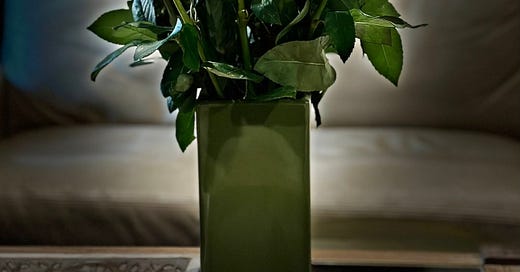We live in a fast-paced world.
I remember all too well, as a child, my eagerness to grow up and “enter the real world.” I was wearing those famous rose-coloured glasses, imagining adulthood as a place of freedom and allure.
And now, after my fair share of adulting—the likes of paying bills, keeping a home from becoming a storage unit for everyone’s leftover energy, and navigating the revolving door of family life, I see things through a much wiser lens.
I’ve raised children, cradled sick babies through the night, orchestrated school routines, after-school activities, playdates, neighbourhood potlucks, marriage, friendships, and family gatherings. It’s a lot. And layered atop all that are other people’s needs, careers, finances, taxes—and for women, the monthly cycles that tug at us physically, emotionally, mentally, and spiritually. A sacred shedding of life, again and again.
We face a kind of death each month. A quiet, internal letting go—a shedding not just of the body, but of energy, emotion, and identity. Our bodies release what is no longer needed. Each cycle is a definitive ending, preparing the ground for something new to grow.
Yet we are rarely invited to honour this. Instead, we’re taught to push through, to keep going, not to fall behind, not to show it, not to slow down. We’re encouraged to override our bodies' sacred intelligence. Rest is rarely seen as productive, and stillness is mistaken for weakness.
The world doesn’t pause for our cycles, so many of us learn not to either. We show up to work, to care for others, to perform and produce, even as our bodies whisper for stillness and care. We override, numb, dismiss. We soldier the f#ck on.
But what if we didn’t?
What if we had allowed that monthly death to be a sacred pause? A reclamation of rest, reflection, and renewal—a rhythm that brought us back to ourselves, again and again?
And what if, even now—especially now—we could reclaim that rhythm, not just as a memory, but as a practice?
Maybe this is where the course of our lives shifts: In the choice to pause.
To listen.
To align.
Not in response to a cycle, but in response to our own profound wisdom.
Because this chapter—the continuation of our lives—deserves the same reverence we so often withheld from our fertile years.
We are remarkably resilient. But were we really meant to ignore the intelligence of our bodies—to live in a constant state of hurry, stretched thin, monitored by imaginary clocks and endless to-do lists?
I say no.
Our ancestors rose with the sun and folded their days around the rhythm of survival. They moved with the land, not against it. Now, we juggle the noise of advertising and the relentless highlight reels of social media—modern-day versions of “keeping up with the Joneses.”
As a woman, I am reclaiming something simpler: time to sit and truly listen, to play, to put my feet up with a book, and breathe without urgency. I’m learning to honour a rhythm in my day that moves with me, not against me, and to restore a sense of reverence for my body’s wisdom and intelligence.
Though I still rise around 6:30 am—no school lunches to pack, no commute—even when I travel across time zones, that rhythm stays with me. I don’t tend to linger in bed, unless it involves soft conversation and morning cuddles—in which case, I’m a wholehearted yes.
Slowing down and listening to my body’s cues feels like a profound act of self-respect. I notice what I eat and when I eat. I sit outside with my first meal, letting the sky greet me as the breeze brushes my face. It’s taken time to release the inner taskmaster and soften into a more sacred pacing, and I feel more expanded in doing so.
Freedom, in this new era, feels different.
Yes, there are still external pursuits. Beautiful adventures continue to call. But I no longer want to miss the quiet miracle of simply being—not always chasing, not caught in a holding pattern waiting for something in a distant someday.
I choose presence.
Each moment is unrepeatable.
Each breath, inherently valuable.
I’m inspired by Esther Hicks's question, “What do you hope to accomplish?” The reply is simply: Being Happy.
I’ve always found joy in supporting others. But more recently, I’ve begun deepening into the exquisite—and often radical—art of serving myself first. I get to choose the pace. I decide where my attention lands. And most tenderly, I get to curate the kind of environment in which I truly flourish.
For many women, this is a new and courageous learning: to make themselves the priority, not from ego, but from deep reverence. Regardless of age, we carry stories of placing others first, often believing our worth was tied to what we did, gave, or accomplished.
"If I do, then I matter."
But there is another truth now rising like morning light: I can simply be and still be wholly (holy) worthy. Valued. Loved. Cared for.
And it begins within—by slowing down and listening with a tenderness that feels intentional, nourishing, and wise.
So I gently ask you—
Where can you find a moment of spaciousness today?
A breath of time to nourish you?





This is so relevant to me right now. I feel exhausted by the emotional and practical needs of people around me. Despite my husband being someone supportive who fills my cup, my capacity and capability is drained over and over
This is beautiful. I have a great appreciation for self care first, ease throughout the day and “being happy”. Love the roses too. Thank you Lulu ♥️